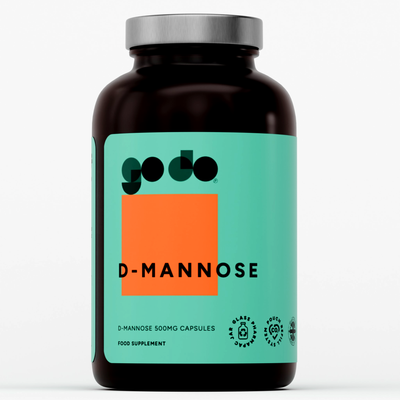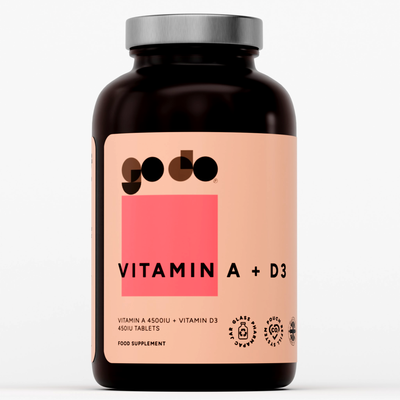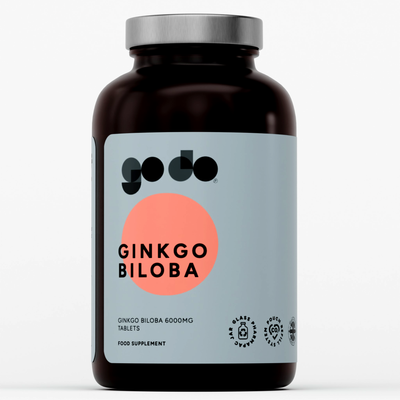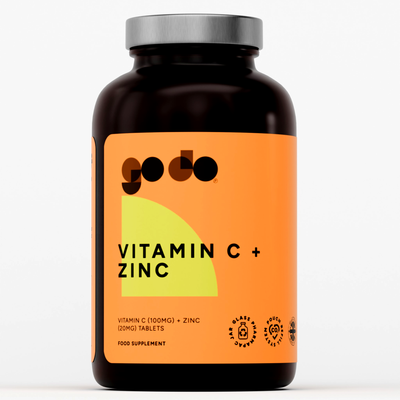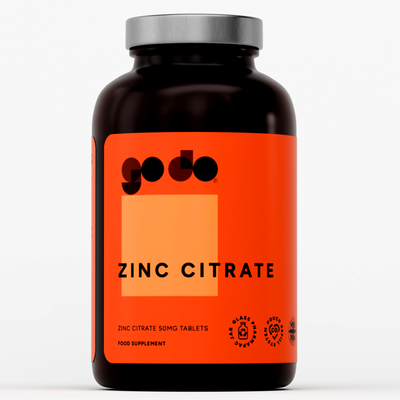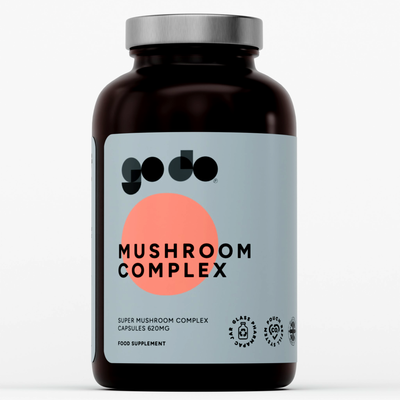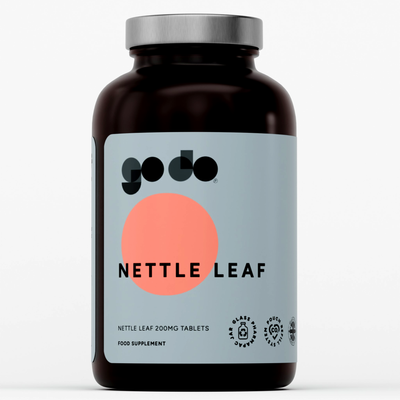Personalized nutrition refers to dietary recommendations and interventions tailored to an individual based on their unique physiological, genetic, and metabolic characteristics, as well as other factors like lifestyle, health history, and personal preferences. The ultimate goal of a personalized nutrition program is to optimize health, prevent disease, and promote well-being for each person.

Here's an example to illustrate how personalized nutrition might work:
Samantha's Personalized Nutrition Journey:
-
Initial Assessment: Samantha is a 28-year-old woman who frequently feels fatigued and occasionally has digestive issues. She decided to explore personalized nutrition as a solution. She fills out a comprehensive questionnaire detailing her health history, current concerns, diet, physical activity levels, and lifestyle habits.
-
Biomarker Testing: Samantha undergoes several tests, including a blood test to measure nutrient levels, lipid profile, blood sugar levels, and other relevant markers. She also provides a saliva sample for a DNA test to look at specific genetic markers related to nutrition and metabolism.
-
Results: Samantha's blood test indicates she has a mild iron deficiency and slightly elevated blood sugar levels. Her genetic test reveals she has a genetic variation associated with lactose intolerance and another that affects her metabolism of omega-3 fatty acids.
-
Dietary Recommendations: Based on these findings, her nutritionist recommends:
-
An iron-rich diet, possibly with a supplemental form of iron.
-
Reducing refined sugar and focusing on low-glycemic-index foods to manage blood sugar levels.
-
Avoiding dairy or opting for lactose-free alternatives.
-
Increasing her intake of omega-3-rich foods like fatty fish or considering an omega-3 supplement.
-
-
Follow-Up & Adjustments: Over the next few months, Samantha has follow-up visits to monitor her progress. She reports feeling more energetic, and her digestive issues have improved. Periodic testing ensures her iron levels are back to normal, and her blood sugar remains stable.
-
Feedback and Technology Integration: Samantha uses a mobile app that integrates with her health data. The app provides her with meal suggestions, tracks her nutrient intake, and gives reminders for any supplements. It adapts over time, taking into account feedback from Samantha about her preferences and how she feels after consuming certain foods.
This example illustrates the comprehensive approach of personalized nutrition: understanding an individual's unique needs and tailoring advice accordingly. Advances in technology, genetic testing, and data analysis are making such individualized care more accessible to the general public.
Why is Personalised nutrition important?
Unlike broad, universal guidelines for healthy eating, personal nutritional analysis considers factors like metabolic characteristics to create individualized nutritional suggestions tailored specifically to you. Each person responds differently when eating food and this is linked with your chance of enduring a chronic illness.
Personalized nutrition is important for several reasons, reflecting the growing recognition that individualized approaches to health and well-being can be more effective than broad, one-size-fits-all guidelines. Here are some of the key reasons why personalized nutrition is gaining traction:
1. Individual Differences: Everyone is unique in terms of genetics, metabolism, gut microbiome, lifestyle, and environmental exposures. These differences can influence how we respond to foods, nutrients, and other dietary components. Personalized nutrition aims to tailor recommendations based on these individual factors.
2. Prevention of Chronic Diseases: Many chronic diseases like obesity, diabetes, cardiovascular disease, and some cancers have nutritional components to their onset and progression. Personalized nutrition can help pinpoint individual susceptibilities and address them early on, potentially preventing or delaying the onset of such diseases.
3. Optimized Health Outcomes: Rather than following general dietary guidelines, a more personalized diet approach can optimize specific health outcomes. For example, athletes might need specific nutrition strategies for performance, while others might seek dietary strategies for brain health or longevity.
4. Enhanced Motivation and Adherence: When individuals receive recommendations tailored to their unique needs and preferences, they may be more motivated to follow them and more likely to experience positive results. This can lead to greater long-term adherence to healthy eating patterns.
5. Integration with Technology: With advancements in technology, wearables, and mobile apps, it's becoming easier to monitor health metrics in real time and adjust dietary recommendations accordingly. This tech integration makes personalized nutrition more actionable and dynamic.
6. Gut Microbiome Insights: Recent research into the gut microbiome has shown that the bacteria in our digestive system play a crucial role in our overall health, influencing metabolism, immunity, and even mood. Personalized nutrition can take into account these microbial differences, further refining dietary advice.
7. Genetic Insights: Genetic testing can reveal specific variations that affect nutrient metabolism, sensitivities, intolerances, and predispositions. Incorporating these insights into dietary advice can lead to more precise and beneficial recommendations.
8. Consumer Demand: With the democratization of health information and increased awareness of individual health needs, consumers are demanding more personalized solutions to their health and nutrition challenges.
9. Economic and Health System Benefits: By preventing or better managing chronic diseases through personalized nutrition, there could be a reduction in healthcare costs and a lessened burden on healthcare systems in the long term.
In essence, personalized nutrition recognizes the complexities and interplay of various dietary factors that influence an individual's health. By providing more precise and individualized recommendations, it has the potential to drive better health outcomes and improve overall well-being.

Does personalized nutrition work?
Researchers have only recently begun comparing personalized nutrition programs with generally accepted diet advice. New research shows that customized food plans could help prevent health issues such as Type 2 diabetes. Probably they will follow it more easily. The systematic reviews examining 11 studies examined whether individualized nutritional guidance in healthy adults had an impact. The researchers concluded that individuals receiving personal nutrition advice were more likely to change their eating habits.
§The effectiveness of personalized nutrition depends on various factors, including the accuracy of the tools used for personalization (e.g., genetic tests, microbiome assessments), the specificity of the recommendations provided, the individual's adherence to those recommendations, and the endpoints or outcomes being measured. There's growing evidence to support the benefits of personalized nutrition in certain contexts, but it's still an evolving field. Here are some key points to consider:
1. Emerging Evidence: Some studies suggest that personalized nutrition can improve dietary behaviors better than generic dietary advice. When individuals receive recommendations tailored to their specific needs, they might be more motivated to follow and stick to them.
2. Genetic Insights: While certain genetic markers can provide insights into nutrient metabolism and potential food intolerances, the science is still developing. Some genetic markers have strong evidence linking them to specific dietary responses (e.g., lactose intolerance due to the LCT gene), while others might not be as well-established.
3. Microbiome Considerations: The gut microbiome plays a role in nutrient metabolism, immunity, and even behavior. While understanding of this area is growing rapidly, translating microbiome data into precise dietary recommendations is still in its infancy.
4. Adherence: Even the most accurate personalized nutrition advice is ineffective if not followed. Factors like ease of implementation, cultural considerations, taste preferences, and cost can influence adherence.
5. Complexity of Human Health: Nutrition is just one aspect of overall health. While personalized nutrition can address individual dietary needs, other factors like sleep, stress, physical activity, and environmental exposures also play significant roles in health outcomes.
6. Long-Term Studies Needed: Many of the studies on personalized nutrition are relatively short-term. Longitudinal studies are needed to understand the long-term benefits and potential risks of personalized nutrition interventions.
7. Holistic Approach: Effective personalized nutrition should also consider an individual's mental, emotional, and cultural relationship with food. It's not just about nutrients but also about a person's overall relationship with eating and health.
8. Economic and Accessibility Concerns: There's a risk that personalized nutrition, especially when tied to advanced genetic or microbiome tests, becomes a luxury available only to those who can afford it, potentially widening health disparities.
In summary, while there's potential for personalized nutrition to offer improved dietary guidance tailored to individual needs, it's essential to approach the topic with a balanced view. The field is promising, but like any emerging area of science and health, further rigorous research is needed to determine its full benefits and limitations.

1. Introduction
As science evolves, health, economy, and technology evolve rapidly, the increasing population of people will create challenges for today. The use of chemical products in various activities and industries including the agriculture and food sector has had countless adverse consequences. Some reports have described the treatment of different health components through traditional practice and certain foods (Vyas and al 2018). Advances in analytical techniques were among major breakthroughs in finding key ingredients in food, which has brought financially sound consumers to buy foods with a higher nutrient content.
How can personalized nutrition benefit my wellness?
The need for more of nutrition research and studies has been revealed and we know it can be effective for health outcomes in several ways - i.e. managing fat: Early research indicates personalized nutrition can be an invaluable resource in fighting obesity. Even when you're not obese, personalized nutrition can help to change your overall physique.
2. Personalized Nutrition: Concept and Importance
Several other dietary habits and issues may contribute to various types of health conditions like cancer and type II diabetes. It suggests that the personalization of diet may have a greater effect on behavior change and overall wellness outcomes as a whole (Ordovas et al, 2018). Personalized nutrition is a method based on details of a specific person's characteristics for creating a nutritional product or service. Gibney said he and colleagues were looking to develop a lifestyle program to assist individuals in the attainment of healthy lifestyle changes that are beneficial to their own lives.
Health and metabolic diseases
While consuming a healthy amount of food may be beneficial to your overall health, eating foods that cause higher blood sugar or less fat can not be beneficial to your overall health. After eating sugar can cause fatigue or discomfort. Over time poor response can cause metabolic syndrome and metabolic disorders like stroke and diabetes. Your gut microbiome is an important part of your life. Researchers at the Institute of Biological Sciences have discovered 15 bad bugs that cause health problems. The amount of toxins in our guts varies from person to person.
3.1. Advances in Food Analytics
Food analysis is a continuously evolving analysis methodology dealing with developing more robust production techniques at comparatively lower rates along with assurance of safety quality and traceability in accordance with food laws and the individual needs of consumers. McGorrin (2009) said food analysis has largely been used as an instrument to develop new products, to control quality, regulatory enforcement, or problem-solving in order to improve.
3.2.1. Occurrence of Diet and Nutritional Based Chronic Diseases
Nutritional Base Disorder is an illness affecting human health. There can be excessive nutritional imbalance in the food that causes weight gain and chronic diseases such as cardiovascular disease, hypertension, and cancer. Various nutrient deficiencies related to chronic disease, are shown as symptoms and corresponding nutrient-dense diets.
Nutrient deficiencies are a disease that manifests in a person. Chronic diseases can be inherited over time and this process requires some time to correct itself. The relationship between chronic illnesses and food is complicated as most illnesses develop over a period, but the identification of dietary causes of heart disease is difficult to determine. In 1948, the Framingham Heart Study was the first to introduce the term risk factor into public discourse. This study found for the first time that smoking cigarettes increased blood pressure and high cholesterol were predictive of a potential heart attack and mortality (Weininger, 2019).
Lipids and ApoE polymorphism
These hydrophobic biomolecules include phospholipid sterol and triglycerides. These organisms help maintain energy balances, support essential systems, control food consumption, and regulate growth and reproduction. Increasing intake of saturated fat very-soluble glycerols, like glycerol or LDL, can also increase the risk of metabolic disorders. Apoliporous proteins are key regulated components of cholesterol.
Personalisation based on analysis of current behaviour, preferences, barriers, and objectives
Most researchers are concerned with capturing the genetic or phenology characteristics of individuals. The implicit hypothesis is, that the better we can measure, the better the results of personalizing the user experience. 23. Increasing awareness has been gathered that unlike medicine the diet requires people to make choices each day. The adoption of the new lifestyles, including changing food habits, depends on effective cooperation with the participants who are encouraged to assume responsibility for their behaviors and ultimately health.
Is personalized nutrition more effective than alternative approaches?
Unlike RCTs using clinical data on the effect of nutrient levels on a patient's weight and mood, it is largely influenced by a disease risk assessment. The following are the main issues. Does personalized eating cause better outcomes? Does the change affect health and happiness? We don't know the answer to this one, but we can't confirm this. 2749. The effectiveness of sharing a genetic risk of a disease to others in promoting health behaviors remains low.
3.2.2. Awareness due to Various Public Health and Nutrition Based Programs
Since its establishment, the United Nations has remained active in improving the world health system. Its creation in 1948, led by the World Health Agency, was a global initiative led by WHO at the United Nations. World Health is a worldwide celebration every year. At that time the WHO had a major focus on preventing malaria and the diseases related to infants, tuberculosis.
Vitamin D and GC polymorphism
Vitamin D is a fat-soluble vitamin that can only be synthesized by sunlight when exposed to ultraviolet radiation UVB. Vitamin D binds to vitamin B and its derivatives to the blood in the bloodstream through the enzyme GC ("IVDBP"). Vitamin D regulates the absorption of calcium and phosphate to maintain a healthy level of calcium phosphor and supports bone and teeth development.
3.3. Advances in Application of Information Technology in Food Science
Advancements in information technology have influenced every corner of scientific research and development, but food sciences do not stand out. It also experienced considerable use of information technology for various technical developments, economic and ad hoc research, and market preference. Food regulates various processes within the body. However, there was growing admiration for the nutritional effect of stopping various inflammatory diseases. Important efforts have been made to encourage the improvement systematic analysis of the food source's nutritional value.
3.4. Concept of Gene-Diet Interaction
Due to dietary changes, sedentary lifestyles, and inevitable stress, a significant portion suffers from nutritional ineptitude. The irregular intake of nutrients is a key cause for many health issues ranging from obesity to heart diseases, diabetes, and obesity and is deemed a major problem in ages and populations globally. Recent research showed how different genes can contribute to causing adverse health effects in a variety of ways.
3.5. Growing Consumer Concern Toward Health/Novel Foods for Better Health
Now it’s a time for consumers to think about healthy living, and healthy meals even at a very low price. Consumer safety is at the heart of his efforts to remove foods from the shelves on supermarket shelves. The status of health, weight, size, and shape are currently the concern. Consumers are well aware that foods have the capability and motivation to satisfy these desires. The intelligent change took place through “Personalized Nutrition”, in general, to acquire a better life.
4. Application of “Omics” Tools and Techniques in Nutrition Science
As a consequence, research on food science and nutrition will be revolutionized by utilizing “omics” applications soon (Alfaro, Young, 2018). The term “omics” collectively refers to the technology used to study the structures of different biomolecules in biological samples (Coughin 2014). These technologies are primarily used at high throughput, which results in multiple measurements and simultaneous detection of a globally distributed gene set including expressed proteins or metabolites.
5. Future Challenges and Conclusion
It is clear from the facts of the last section that Precision Nutrition is making considerable progress because the availability of numerous research studies proves that this approach is effective. Without question, there is an urgent need to unravel the understanding of complicated gene & dietary interactions. Therefore, the real implementation of successful models will be extremely important to the real-time development of concepts.

Suggestions for the future
The advancement in personalized food is facilitated through many factors: First, develop strong theories and define personal characteristics. Second, the proof of efficacy and cost-effectiveness for well-conducted research. Third, the introduction of regulations for public safety and trust among nutrition and health other professionals. This would need significant scientific evidence. It means:
Conclusion and prospect
Increasing dietary intake and nutrigenetic changes have been found in rapidly progressing fields involving nutrigenomics. These genetic variants may be valuable in developing customized dietary strategies enabling the transition from general food guidance to genotype-directed nutrition. However, many obstacles could prevent the adoption of personalized nutrition. Secondly, food-related disorders like CVDs and T2DM were thought polygenic and therefore were influenced by several genes exhibiting small or medium impact.
Why is diet individualized?
A recent study by researchers examining digestive systems explains how the body reacts to different foods due to the specific composition of the gut microbiome that makes up trillions of bacteria.
Understanding nutritional genomics
Nutritional genomics, often referred to as "nutrigenomics," is an interdisciplinary field that explores the complex interactions between nutrition, genes, and health. At its core, it seeks to understand how individual genetic variations can influence a person's response to specific nutrients and foods. By studying these interactions, nutrigenomics aims to pave the way for personalized dietary recommendations tailored to an individual's genetic makeup. This knowledge has the potential to revolutionize dietary guidelines, enabling more precise interventions to prevent or manage chronic diseases and optimize overall health.
What is integrated nutrition?
Integrative nutrition integrates principles for nutritional therapy in a multidisciplinary setting in the context of integrative and functional medicine to support individual and family health and nutrition advice.
Why it is important to individualize the patient's dietary needs?
Why do people require personalized nutrition? Through engaging patients with understanding the needs and desire for dietary intervention of each patient, medical professionals can identify the optimal nutritional therapy for each individual. 4. It is possible to improve patient health outcomes by implementing nutrition counseling.
What is individualized nutrition counseling?
Nutrition counseling refers to individual, individual advice from the registered dietitian (RD). How can we get nutrition advice at an affordable cost? It helps in the prevention/management of chronic illnesses and also helps with sleep.
Are Persona vitamins worth it?
Efficiency. Persona Nutrition helps you get enough nutrients for a good lifestyle. Persona Nutrition offers individualized nutrition suggestions tailored to your needs and addresses the health problems you have.
Why is personal nutrition important?
Individualized nutritional recommendations make healthy dietary advice relevant to a person's everyday routine. Hence, suggested changes in healthy diet alone can be more successful and lasting.

personalized nutrition how to get started
Starting with personalized nutrition involves a series of steps to assess individual characteristics, needs, and preferences. Here's a step-by-step guide on how to get started with personalized nutrition:
1. Self-Assessment:
- Dietary Recall: Begin by tracking what you eat and drink for a week. This will give you a clear picture of your current eating habits.
- Health and Lifestyle Journal: Document your energy levels, sleep patterns, digestive health, mood, and physical activity. This can help identify correlations between your diet and well-being.
2. Consult a Nutrition Professional:
- Find a registered dietitian or nutritionist who specializes in personalized nutrition. They can provide guidance tailored to your specific needs and health goals.
3. Comprehensive Health Assessment:
- Get a full health check-up, including blood tests to check for nutrient deficiencies, cholesterol levels, blood sugar, and other relevant metrics.
- Consider specialized tests, like food intolerance or allergy tests, if relevant.
4. Genetic Testing (Optional):
- There are commercial kits available that can assess specific genetic markers related to nutrition and metabolism. These can provide insights into lactose intolerance, caffeine sensitivity, predisposition to certain vitamin deficiencies, and more.
- It's essential to discuss the results with a professional who can help interpret their significance and relevance.
5. Microbiome Testing (Optional):
- Consider having a gut microbiome analysis. This test provides information on the types and proportions of bacteria present in your gut, which can influence nutrient metabolism and overall health.
- Like with genetic testing, interpreting the results in the context of your overall health and diet is crucial.
6. Set Clear Goals:
- Are you aiming to lose weight, boost energy, improve gut health, manage a medical condition, or optimize athletic performance? Having clear goals will guide the personalization process.
7. Receive Personalized Recommendations:
- Based on all the gathered information, your nutrition professional will provide dietary, lifestyle, and possibly supplement recommendations tailored to your needs.
8. Monitor and Adjust:
- Regularly review and adjust your personalized nutrition plan based on how you feel and any changes in your health metrics.
- Check in with your nutritionist or dietitian periodically for reassessments and refinements to your plan.
9. Use Technology:
- There are various apps and wearables that can help track your food intake, monitor health metrics, and even provide personalized meal recommendations.
- Choose platforms that integrate seamlessly with your lifestyle and support your personalized nutrition goals.
10. Continuous Education:
- Stay updated with new research and findings in the field of personalized nutrition.
- As our understanding evolves, so might some recommendations, so it's beneficial to stay informed.
Remember, while personalized nutrition provides tailored advice, it's essential to listen to your body and combine this advice with intuitive eating practices. A personalized approach should empower you to make informed choices that enhance your well-being.



